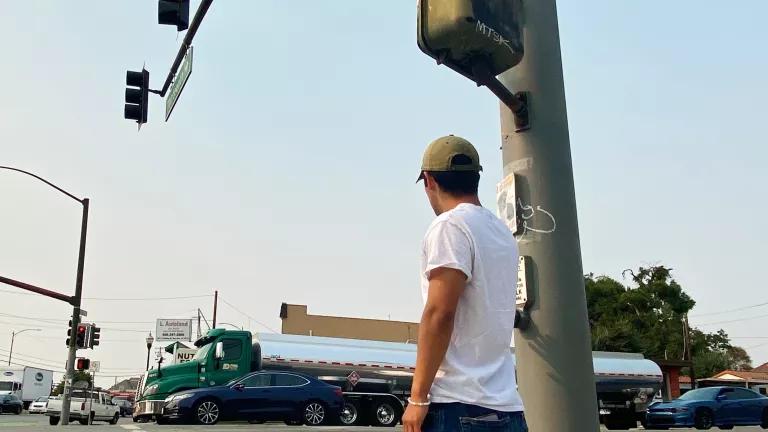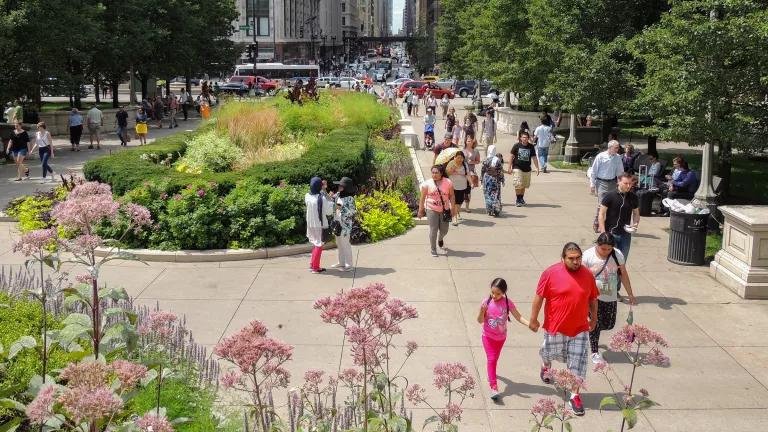No two ways about it, America's transportation infrastructure is falling into disrepair and failing to keep up with the demands of our growing population. Costs for our roads, bridges, railways, runways and ports steadily mount as funding for our extensive transportation system rapidly shrinks. As the primary revenue source for transportation -- federal and state gas taxes -- falls short of our nation's spending needs, elected officials continue to struggle with policy solutions to fill the infrastructure funding gap. Making their decisions all the more difficult is the fact that the American public really has no concept of how much transportation costs, the magnitute of the looming infrastructure fiscal crisis, or an appreciation for how little we actually pay for our transport system compared to other public services.
Take public transportation, for example. Public opinion polling consistently shows a solid majority of Americans favor more investment to expand and enhance transit, as a way to relieve traffic congestion as well as other benefits. (As for other benefits, national transportation studies show that every $1 that communities invest in public transportation generates approximately $6 in economic returns. Moreover, every $1 billion of federal transit investment creates about 35,000 jobs.) Here in the Washington, D.C. metropolitan area, brand new opinion research by the National Capital Region Transportation Board found that more than three-quarters of participants in focus groups want more money to be spent on transit systems.
But here's the catch: People generally don't want to pay more for transportation. In that recent study, for instance, the Washington Post reported that:
Virtually all participants agreed that congestion is a critical regional problem. Most, however, didn’t know how transportation needs have been funded for more than half a century. When several options were presented to increase transportation funding, the most popular was increasing the gas tax. But that won support from only 30 percent of those at the sessions. Half that many — 15 percent — said they supported replacing the gas tax with a per-mile charge for distance driven. While 28 percent said they might support tolls on new roads, only 15 percent said they were willing to see new tolls on existing roads.
These sentiments are in line with NRDC's public opinion focus groups and nationwide survey, conducted last summer. Our study also found this interesting fact: Americans over-estimate what their state spends on public transportation, estimating that it is an average of 16% of their state’s transportation budget (compared to the actual level of about 6 percent)—and still they would like that amount nearly doubled, callingfor their state to spend an average of 28% on public transportation.
So there you have it: Most Americans want even more spending for transportation (especially transit) to alleviate traffic yet they don't want to have to pay for it through higher gas taxes, more tolls or a fee for every mile they actually drive.
It seems this dilemma is what causes our politicians to avoid confronting the infrastructure "fiscal cliff" that awaits us in a few short years when states face bankruptcy in their transportation budgets and the federal government's highway trust fund is projected to dry up. What is needed now is leadership on the part of our elected officials -- and that entails educating consituents not just about the transportation budget crisis, but also about how little each of us spends in relation to the benefits we all receive from the nation's extensive transportation network.
First, consider how much Americans pay for other "essential" services, like utilities or cable TV or internet access. Each of those adds up to thousands of dollars per service, per year, per household. Now consider that the federal government collects 18.4 cents per gallon of gasoline purchased at the pump -- a rate that hasn't been raised since 1993. I live in Maryland, so the state tax is an additional 23 cents per gallon. That's a total tax of about 41 cents per gallon. We put roughly 15,000 miles on our car last year. The car averages 35 mpg. That means we paid only about $175 in gas taxes for the year. Heck, that's half of what I pay for cable, internet and cell phone every month!
I'm sure that those people who reject the notion of raising gas taxes have no idea how little they actually pay compared to their other household costs. Paying a few more cents per gallon at the pump to travel our nation's roads and to ride transit is a pittance when you consider the value of our transportation system and the vital role it plays in our daily lives.
[UPDATE: My anaology above is reinforced by this essay, "Transportation as Utility."]




